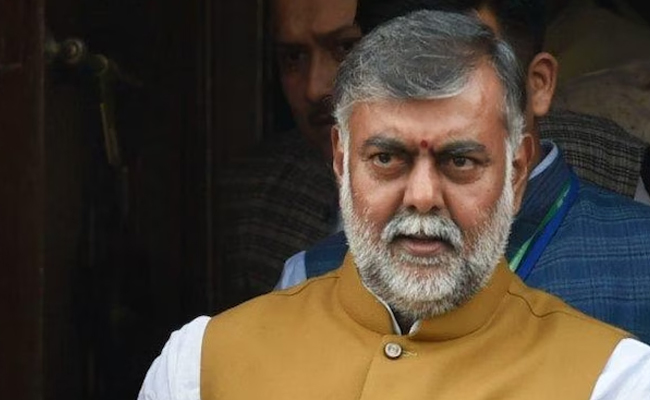New Delhi (PTI): The Union Cabinet on Monday approved the women's reservation bill, Minister of State Prahlad Singh Patel said.
"Only the Modi government had the moral courage to fulfil the demand for women's reservation which was proved by the approval of the cabinet. Congratulations Narendra Modi ji and congratulations to the Modi government," the minister said on X.
Patel is the Minister of State for Food Processing Industries and Jal Shakti.
The Union Cabinet met this evening after the first sitting of the five-day special session of Parliament.
The Cabinet meeting chaired by Prime Minister Narendra Modi went on for over 90 minutes.
Cutting across political lines, leaders have demanded the introduction of the women's reservation bill, which guarantees a 33 per cent quota in Lok Sabha and state assemblies.
The Women's Reservation Bill passed by the Rajya Sabha in 2010 had provision for 33 per cent reservation for women in Lok Sabha and state assemblies.
Earlier addressing the media, the Prime Minister said that "historic decisions" will be taken this Parliament session which may be of short duration but is big on occasion.
The cabinet meeting was attended by Union ministers including Rajnath Singh, Amit Shah, Piyush Goyal, Pralhad Joshi, S Jaishankar, Nirmala Sitharaman, Dharmendra Pradhan, Nitin Gadkari and Arjun Ram Meghwal.
Ever since it was announced that the Parliament session would be held from September 18-22, there has been speculation on various bills, including the women's reservation bill.
In his remarks in Lok Sabha on the discussion on 75 years of Parliament, he asserted that the contribution of women parliamentarians has been on the rise over the years.
Congress spokesman Jairam Ramesh welcomed the "reported decision" of the Union Cabinet.
"It's been a long-standing demand of the Congress party to implement women's reservation. W
"We welcome the reported decision of the Union Cabinet and await the details of the Bill. This could have very well been discussed in the all-party meeting before the Special Session, and consensus could have been built instead of operating under a veil of secrecy," Ramesh said on X
Let the Truth be known. If you read VB and like VB, please be a VB Supporter and Help us deliver the Truth to one and all.
Panaji (PTI): As part of a crackdown against tourist establishments violating laws and safety norms in the aftermath of the Arpora fire tragedy, Goa authorities on Saturday sealed a renowned club at Vagator and revoked the fire department NOC of another club.
Cafe CO2 Goa, located on a cliff overlooking the Arabian Sea at Vagator beach in North Goa, was sealed. The move came two days after Goya Club, also in Vagator, was shut down for alleged violations of rules.
Elsewhere, campaigning for local body polls, AAP leader Arvind Kejriwal said the fire incident at Birch by Romeo Lane nightclub at Arpora, which claimed 25 lives on December 6, happened because the BJP government in the state was corrupt.
An inspection of Cafe CO2 Goa by a state government-appointed team revealed that the establishment, with a seating capacity of 250, did not possess a no-objection certificate (NOC) of the Fire and Emergency Services Department. The club, which sits atop Ozrant Cliff, also did not have structural stability, the team found.
The Fire and Emergency Services on Saturday also revoked the NOC issued to Diaz Pool Club and Bar at Anjuna as the fire extinguishers installed in the establishment were found to be inadequate, said divisional fire officer Shripad Gawas.
A notice was issued to Nitin Wadhwa, the partner of the club, he said in the order.
Campaigning at Chimbel village near Panaji in support of his party's Zilla Panchayat election candidate, Aam Aadmi Party leader Kejriwal said the nightclub fire at Arpora happened because of the "corruption of the Pramod Sawant-led state government."
"Why this fire incident happened? I read in the newspapers that the nightclub had no occupancy certificate, no building licence, no excise licence, no construction licence or trade licence. The entire club was illegal but still it was going on," he said.
"How could it go on? Couldn't Pramod Sawant or anyone else see it? I was told that hafta (bribe) was being paid," the former Delhi chief minister said.
A person can not work without bribing officials in the coastal state, Kejriwal said, alleging that officers, MLAs and even ministers are accepting bribes.





